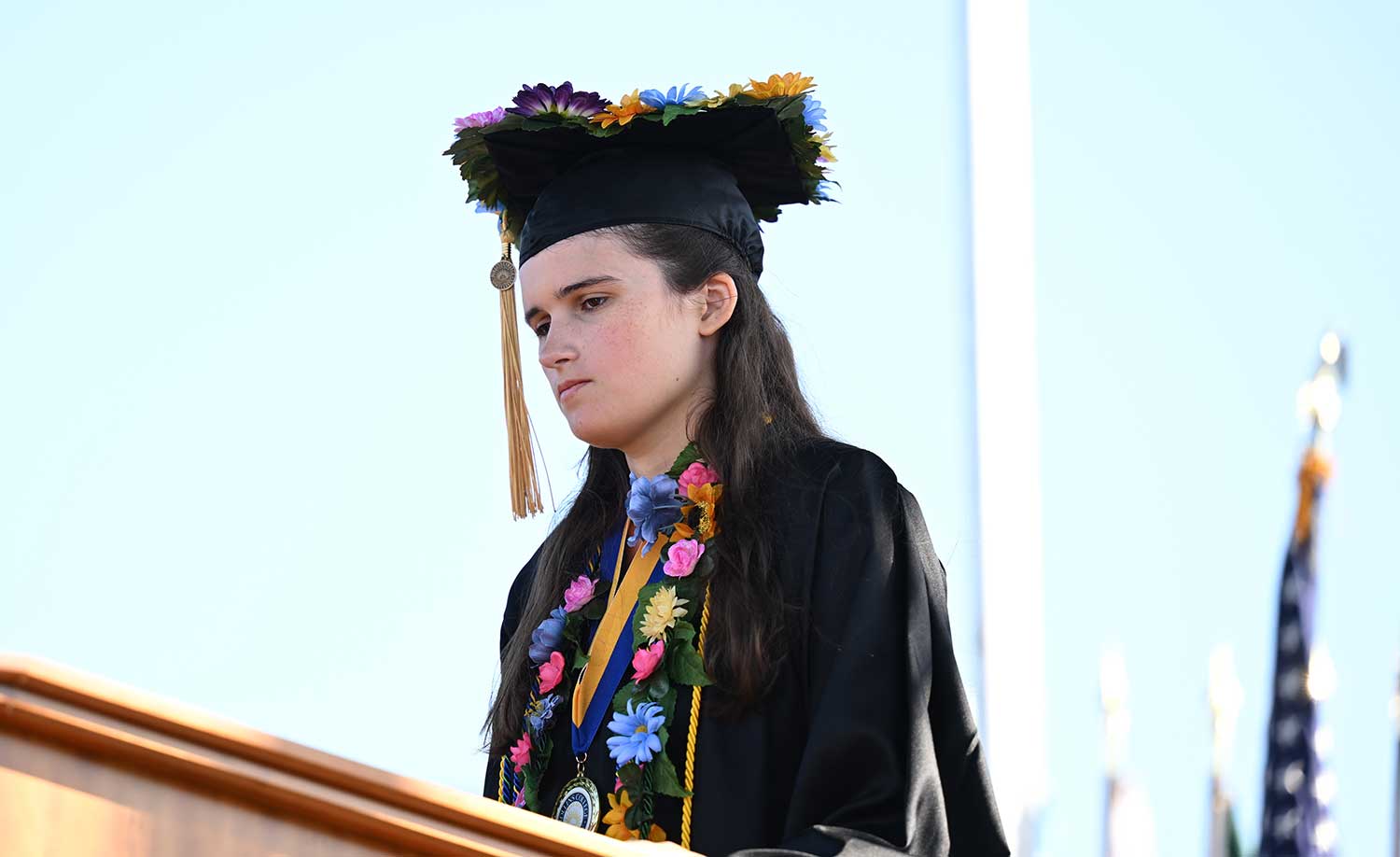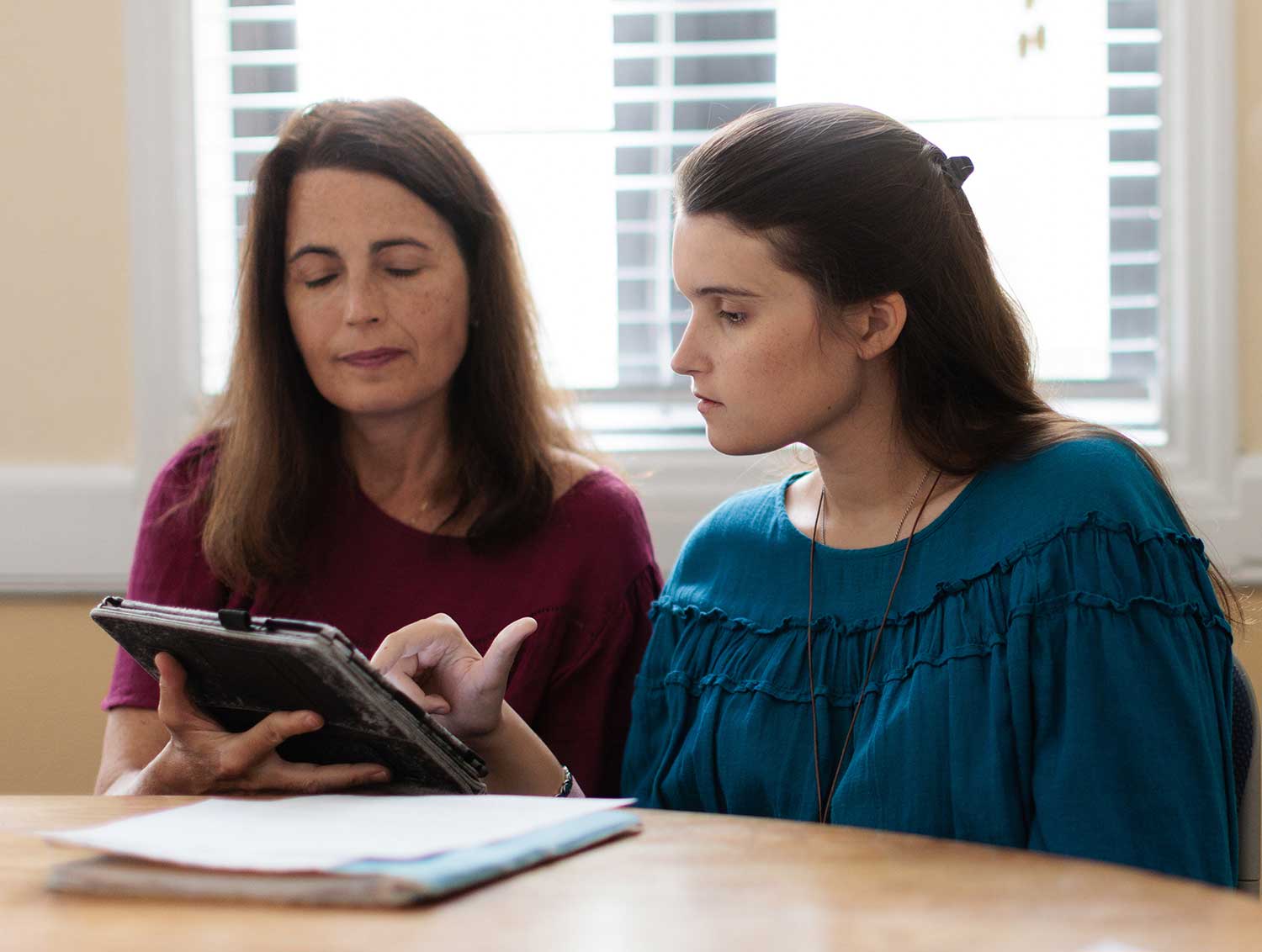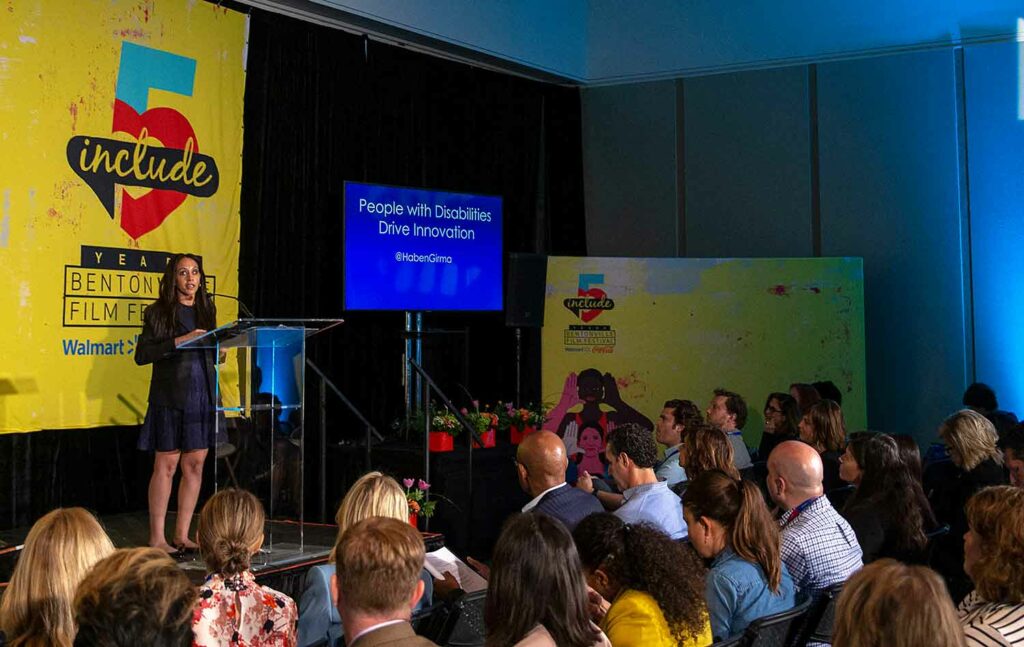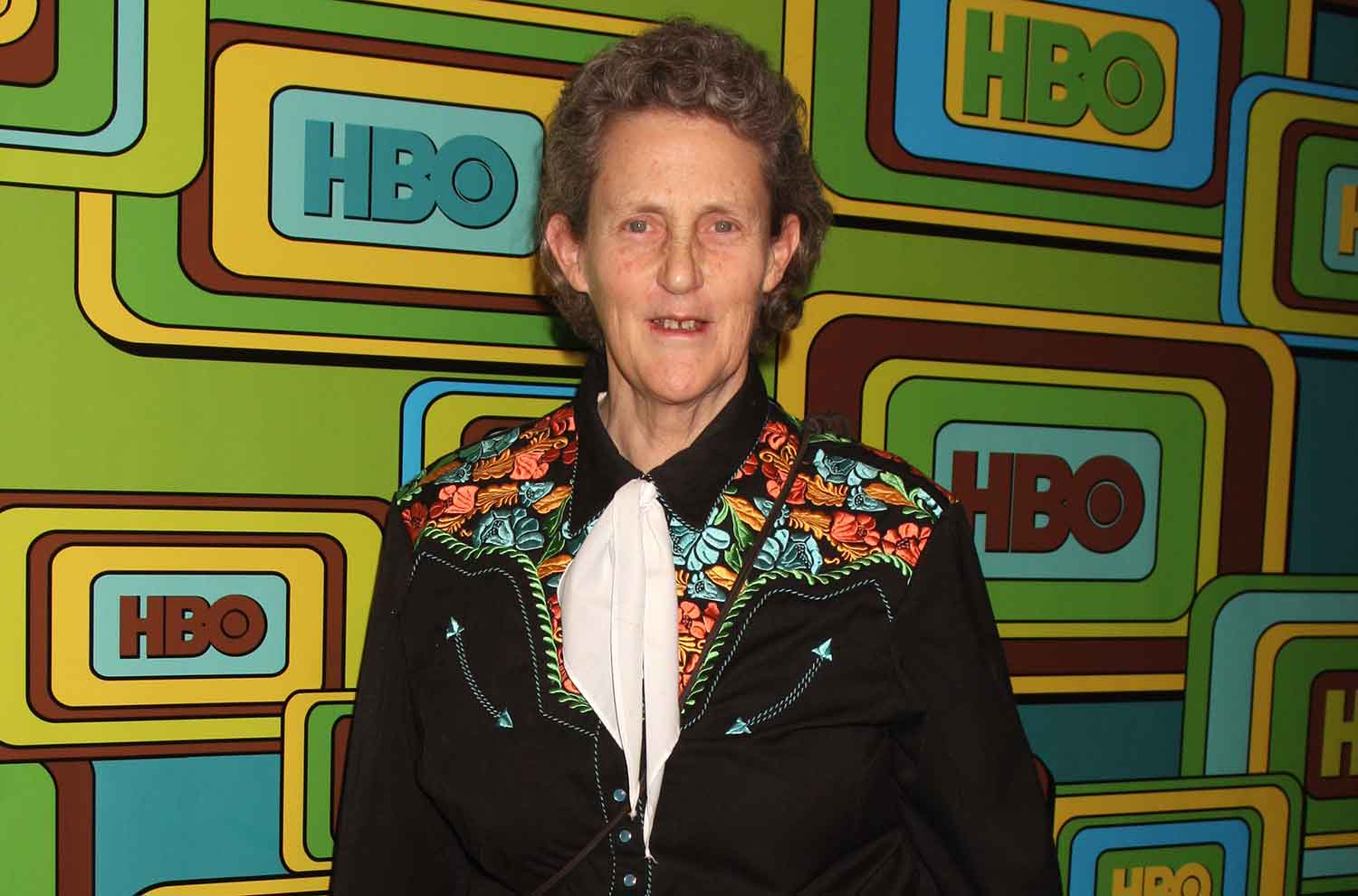Top of the Class
Elizabeth Bonker found her voice, and she wants to help others do the same.

When Elizabeth Bonker gave the commencement (graduation) speech to her classmates at Rollins College in May 2022, she didn’t say a word. But her message came through loud and clear: Use your voice to help others.
Bonker, who is nonspeaking, delivered her speech using text-to-speech software. That is, she typed the words into a device and a computerized voice conveyed them into the microphone. Bonker used the technology in her college classes as well. She said it had opened a whole world to her.
“I am one of the lucky few nonspeaking autistics who have been taught to type,” she told her classmates. “That one critical intervention unlocked my mind from its silent cage, enabling me to communicate and to be educated.”
Bonker is affected by autism, a term used to describe a range of conditions that can include repetitive behaviors, trouble reading social cues, and communication challenges. About 25 to 35 percent of people on what’s called the autism spectrum are nonspeaking, meaning they don’t speak or they use only a few words.

Elizabeth Bonker (right) uses text-to-speech technology to communicate.
Bonker is passionate about helping others who are affected by nonspeaking autism. While in college, she founded Communication 4 All, an organization that provides communication resources to schools and other facilities. She’ll continue with this type of work now that she has her college degree.
“I have a dream. Communication for all,” she said in her speech. “My life will be dedicated to relieving [nonspeaking people] from suffering in silence.”
Bonker told her classmates that she hoped they would be inspired by Fred Rogers, as she was. Rogers was known to millions of children as Mister Rogers through his TV show, Mister Rogers’ Neighborhood. He often talked about helping others. In fact, his show aimed to help kids be comfortable with who they are.
“When he died, a handwritten note was found in his wallet,” Bonker said. “It said, ‘Life is for service.’”
Bonker intends to keep putting that lesson into action.



